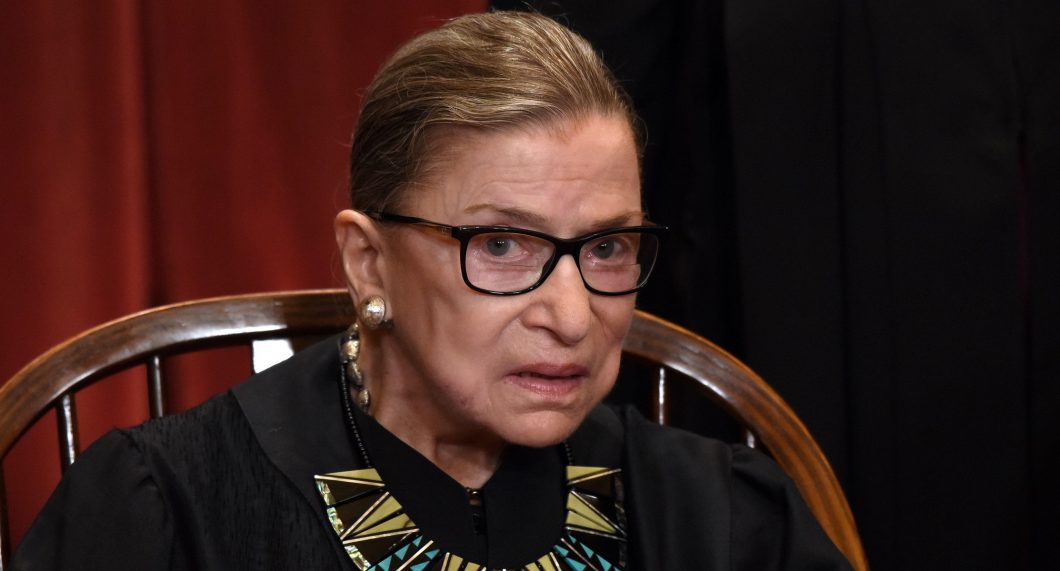The Crisis of Left Jurisprudence
The rise of originalism is the most important development in constitutional jurisprudence in the last half century. As a sociological matter, its rise has been almost wholly associated with the Right, including both conservatives and libertarians. But it is also the source of a crisis for the Left, which needs its own compelling theory as a counterweight. To date, the Left has not found any unifying answer, because they found it is difficult to craft a theory that both respects democracy and yet protects many decisions that the Left holds dear, most importantly Roe v. Wade. To be sure, critics of originalism on the Left abound. But to criticize is to play defense. Battles are almost always won on offense.
Originalism emerged in large measure because the decisions of the Warren Court and to some extent the Burger Court were hard to square with the ideal of democracy—a fuzzy, but fundamental principle of our polity. That is, the Courts issued more and more decisions that did not seem to comport with any plausible reading of the Constitution’s text. Without such a basis, they came to be regarded as the substitution of the justices’ own views for the democratic polity.
The earliest and still best non-originalist response to this difficulty for the Left was that of John Hart Ely, who argued in Democracy and Distrust (1980) that the Constitution, taken as whole, should be read as a document reinforcing democracy and that many decisions, like guaranteeing one-person one-vote and Brown v. Board of Education, could be understood as perfecting democracy by improving its mechanisms and dispelling biases that impeded its sound deliberation. But Ely famously did not justify Roe v. Wade, because it did not improve democracy’s procedures writ large, but instead simply imposed substantive values on the public. As such, it was “not constitutional law and gives almost no sense of trying to be so.” As abortion rights increasingly became an animating, if not the animating principle, of the Democratic Party, Ely’s defense did not satisfy the Left’s needs.
Another serious effort was to argue that the Supreme Court’s decisions were not anti-democratic, because they followed the desires of the public. The most elaborate articulation of that defense was Barry Friedman’s The Will of the People (2009). But intuitively, this apology seemed wrong, because the Court seems to follow elite rather than popular opinion. And a recent book by Neal Devins and Larry Baum, The Company They Keep (2019), demonstrates definitively why and how the Court does follow elite opinion. Basing their argument on psychological literature, Devins and Baum show that the justices, just like ordinary people, are motivated to maintain the approval of peers and allies. Moreover, the justices have little reason to pay much attention to popular views, because ordinary people do not have much understanding of what the Supreme Court does. The authors then show that over a range of cases, particularly those in civil liberties, that Court majorities have hewed much closer to the views of elites than of the people as a whole.
A variation on the “popular will” argument—that the Court is responsive to social movements—fares even worse as justificatory jurisprudence. First, the democratic critique remains unanswered unless the social movement is a majority. One might ask further: what does it mean to be responsive? Given that there are many social movements at work all the time, many conflicting, Devins’ and Baum’s analysis suggests that it is ultimately elites that will choose which movements to turn into constitutional doctrine. Again that reality undermines any claim of progressivism to embody the popular will.
Another response of the Left was to valorize precedent. On this theory, as a court of law, the Supreme Court should follow precedents and particularly precedents that have been reaffirmed. That is the line that was often embraced by Senate Democrats on the judiciary committee at confirmation hearings. It had the salient advantage of protecting the precedent that for them was the most politically-crucial precedent of all, Roe v. Wade. But is also could draw some academic support from theories of judicial decision making, such as that offered by David Strauss, which argue that the real stuff of constitutional law is and should be precedent with a very healthy respect for stare decisis.
The problem with this theory for the Left is twofold. First, the Rehnquist and Roberts Courts have created many precedents that the Left hates. Citizens United (striking down restrictions on election speech), Shelby County v. Holder (striking down a provision of the Voting Rights Act of 1965), Zelman v. Simmons-Harris (upholding school vouchers for religious schools), Parents v. Involved in Community Schools v. Seattle (striking down racial balancing) are just four of the most famous, but a complete list would be quite extensive. Second, in recent years, the Democratic Party has moved Left. It likely wants to mint whole new doctrines aimed against economic inequality that are against the great weight of case law.
A few theorists on the Left have argued in favor of judicial deference to democratic legislation. But that theory again founders on Roe v. Wade, which depends on a transgressive reading of the Constitution to create a right to abortion against the decisions of any state legislature that dares to think differently. Roe v. Wade makes it impossible for the left today to embrace a consistent doctrine of deference.
Perhaps the most promising development in Left jurisprudence is the appearance of a left-leaning originalism. The most important theorist in this area is Jack Balkin, who has developed a theory of “framework originalism.” This theory, briefly stated, argues that the Constitution should be interpreted according to its original meaning but many, if not most, of the Constitution’s clauses do not have a very determinate meaning and judges should be able to fill in their interstices. The Left thus has space to pour progressivism into these empty vessels.
Unorthodox originalism may well be a contender for the Left’s best counter to originalism. But it faces both analytical and political obstacles. First, as Mike Rappaport and I have shown, increasingly originalist research discovers quite precise meanings to the kind of clauses that Balkin finds indefinite. Not surprisingly, the meanings do not tend to align with the social democracy or democratic socialism of the modern Democratic Party. Second, it is not clear that Balkin answers the democracy objection unless the Constitution delegates discretion to the judiciary. The duty to say what the law is implicitly assumed that judges were to apply the law, not choose it. And finally, for the truly woke, any reference to originalism is deeply offensive, as the Constitution is in the main the product of white males, some of whom owned slaves.
Originalism got a big boost as a jurisprudential theory from Justices Antonin Scalia and Clarence Thomas. Unfortunately for the Left, they do not seem to get much assistance from justices appointed by Democratic presidents. For all the celebration of Ruth Bader Ginsburg she is not identified with any theory at all, except perhaps for the use of international and foreign law. That is hardly a full theory of constitutional decision making, and outsourcing the Constitution to foreign nations is unlikely ever to be popular. Stephen Breyer offered his views of jurisprudence in Active Liberty (2006), which, like Ely, called for the Constitution to reinforce democracy. But he did not even mention Roe in particular or substantive due process in general. As Mike McConnell has said this omission disqualifies Breyer’s jurisprudential theory as a comprehensive—and I would add serious—interpretive doctrine.
It is not clear what it will take for the Left to come up with compelling response to originalism. On the one hand, progressivism wants to embody the people’s will. On the other hand, some of the left’s favorite decisions don’t emerge either from the text that the people ratified or even from today’s democratic mechanisms. It is too soon to say that contemporary left jurisprudence is trying to square the circle, but the absence of a compelling and consensus alternative to originalism is especially striking—particularly given the dominance of the Left among constitutional theorists.


